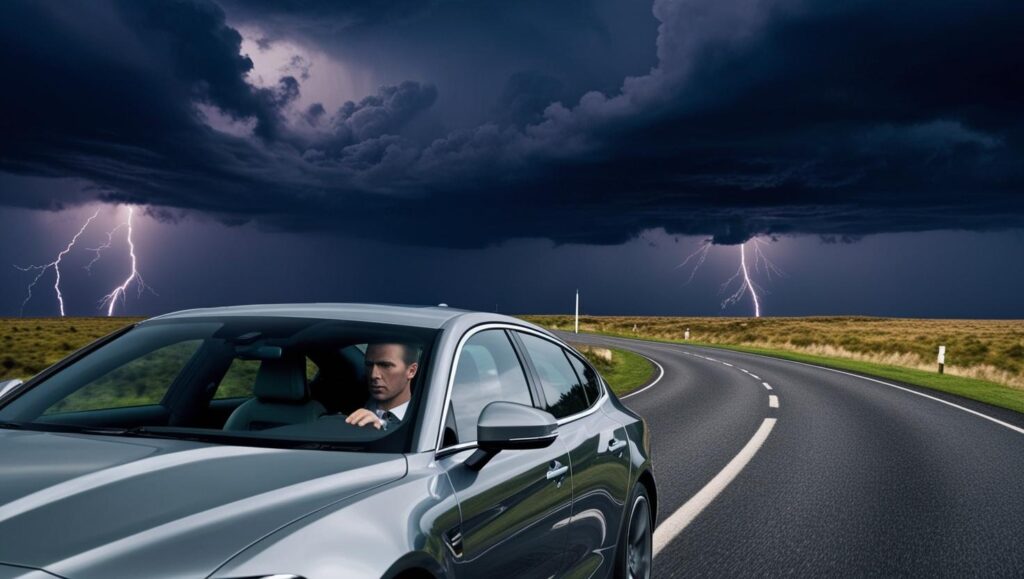Going on a road trip is an exciting adventure, but safety should always come first. Whether you’re driving across the country or exploring scenic backroads, taking precautions can ensure a smooth and enjoyable journey. Here are essential road trip safety tips to keep in mind before and during your trip.
1. Plan Your Route in Advance
Before hitting the road, research your route and make a detailed travel plan. Check for road conditions, construction zones, and alternative routes in case of unexpected detours.
- Use navigation apps like Google Maps or Waze.
- Have a physical map as a backup.
- Identify rest stops, gas stations, and lodging options.

2. Perform a Vehicle Safety Check
A well-maintained car is crucial for road trip safety. Before leaving, inspect your vehicle to ensure it’s in top condition.
- Check tire pressure and tread depth.
- Test brakes, headlights, and turn signals.
- Top off all fluids, including oil and coolant.
- Ensure the spare tire and jack are in good condition.
3. Pack an Emergency Kit
An emergency kit can be a lifesaver in case of unexpected situations. Essential items include:
- First aid supplies
- Flashlight with extra batteries
- Jumper cables
- Tire repair kit and air pump
- Bottled water and non-perishable snacks
- Blanket and warm clothing
4. Follow Safe Driving Practices
Long hours on the road can lead to fatigue, increasing the risk of accidents. Stay alert and follow these safe driving habits:
- Take breaks every two hours to stretch and rest.
- Share driving responsibilities if traveling with others.
- Avoid distractions like texting or adjusting GPS while driving.
- Stick to speed limits and obey traffic laws.
5. Monitor Weather Conditions
Weather can change quickly, especially in mountainous or coastal areas. Before heading out, check the forecast and prepare accordingly.
- Pack chains if driving in snowy regions.
- Avoid driving in heavy rain or storms if possible.
- Adjust driving speed for wet or icy roads.

6. Keep Your Valuables Secure
When stopping at gas stations, rest areas, or attractions, always keep an eye on your belongings.
- Lock doors and close windows when leaving your vehicle.
- Store valuables in the trunk instead of visible seats.
- Be aware of your surroundings, especially at night.
7. Stay Connected
Keeping in touch with family and friends is important for safety. Make sure you have reliable communication options:
- Carry a fully charged phone and a car charger.
- Share your travel itinerary with someone you trust.
- Use offline maps in case of weak cell service.
8. Be Cautious with Overnight Stops
If your road trip includes overnight stays, choose accommodations wisely.
- Book hotels or campgrounds in advance.
- Park in well-lit areas.
- Avoid leaving valuables in plain sight inside the vehicle.
9. Stay Aware of Wildlife and Pedestrians
In rural areas, wildlife crossings can be a hazard. Likewise, in cities, pedestrian-heavy zones require extra attention.
- Slow down in areas with wildlife warning signs.
- Use high beams at night when driving in less populated areas.
- Watch for cyclists and pedestrians in urban settings.
10. Trust Your Instincts
If something feels off, trust your gut. Whether it’s an unfamiliar area, a suspicious situation, or road conditions that seem unsafe, prioritize your well-being.
- Avoid stopping in isolated areas at night.
- If you’re being followed, drive to a public place or police station.
- Keep doors locked while driving in unfamiliar locations.

Final Thoughts
A road trip should be a fun and memorable experience, but safety must always come first. By following these road trip safety tips, you can minimize risks and enjoy the open road with confidence. Stay prepared, stay alert, and most importantly, have a fantastic journey!